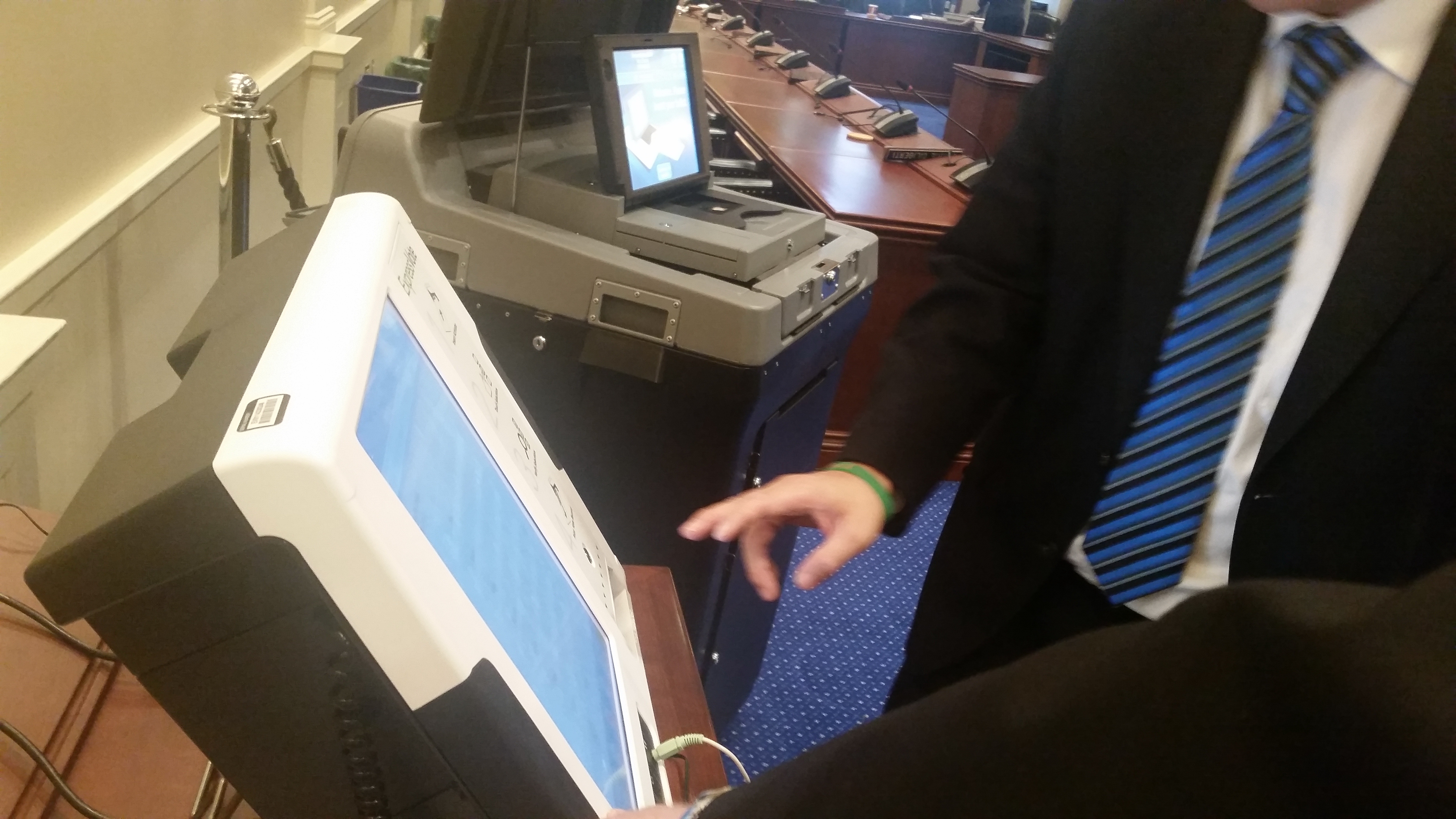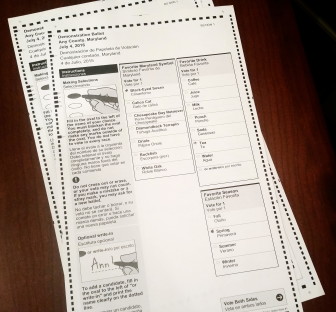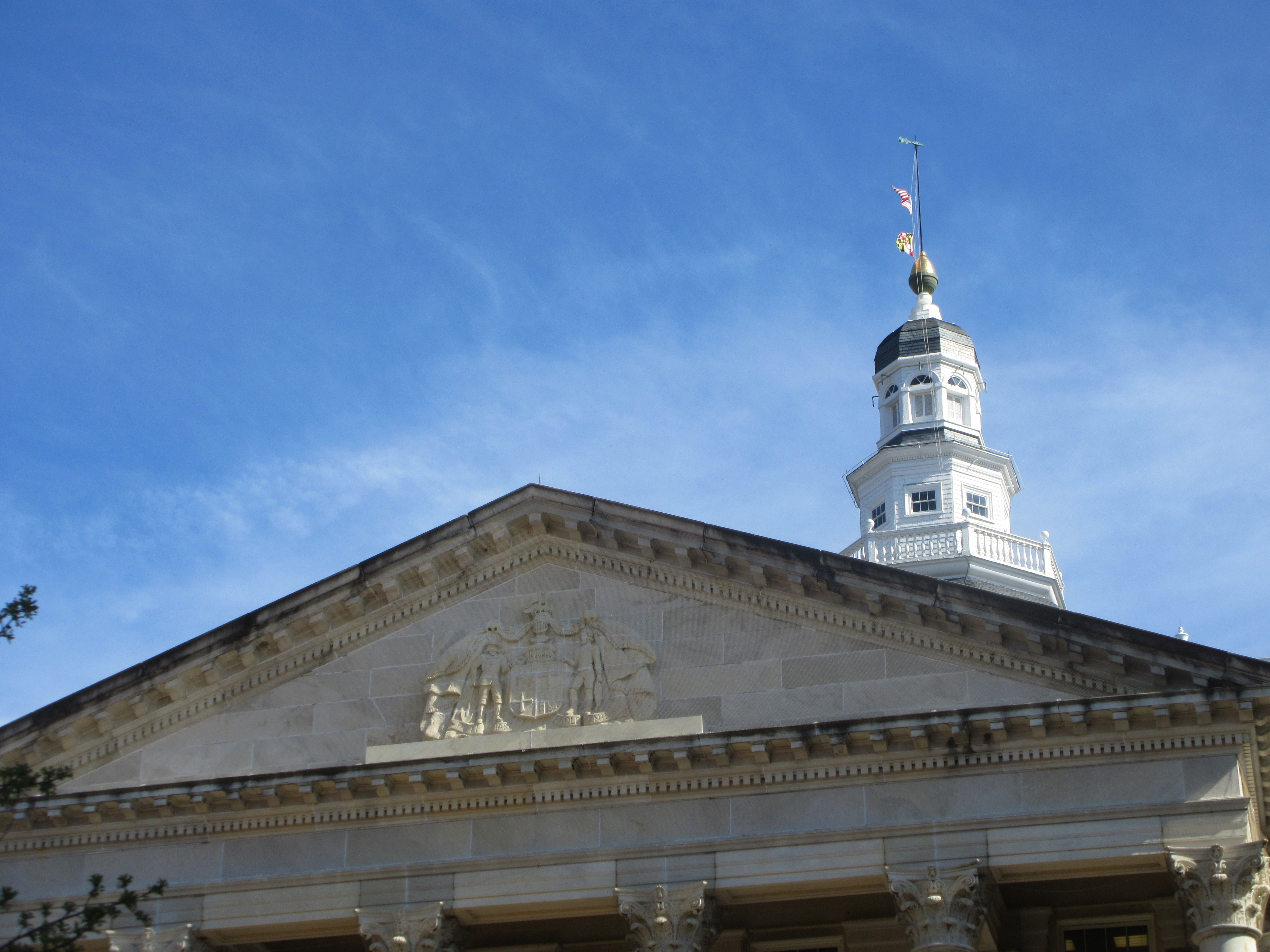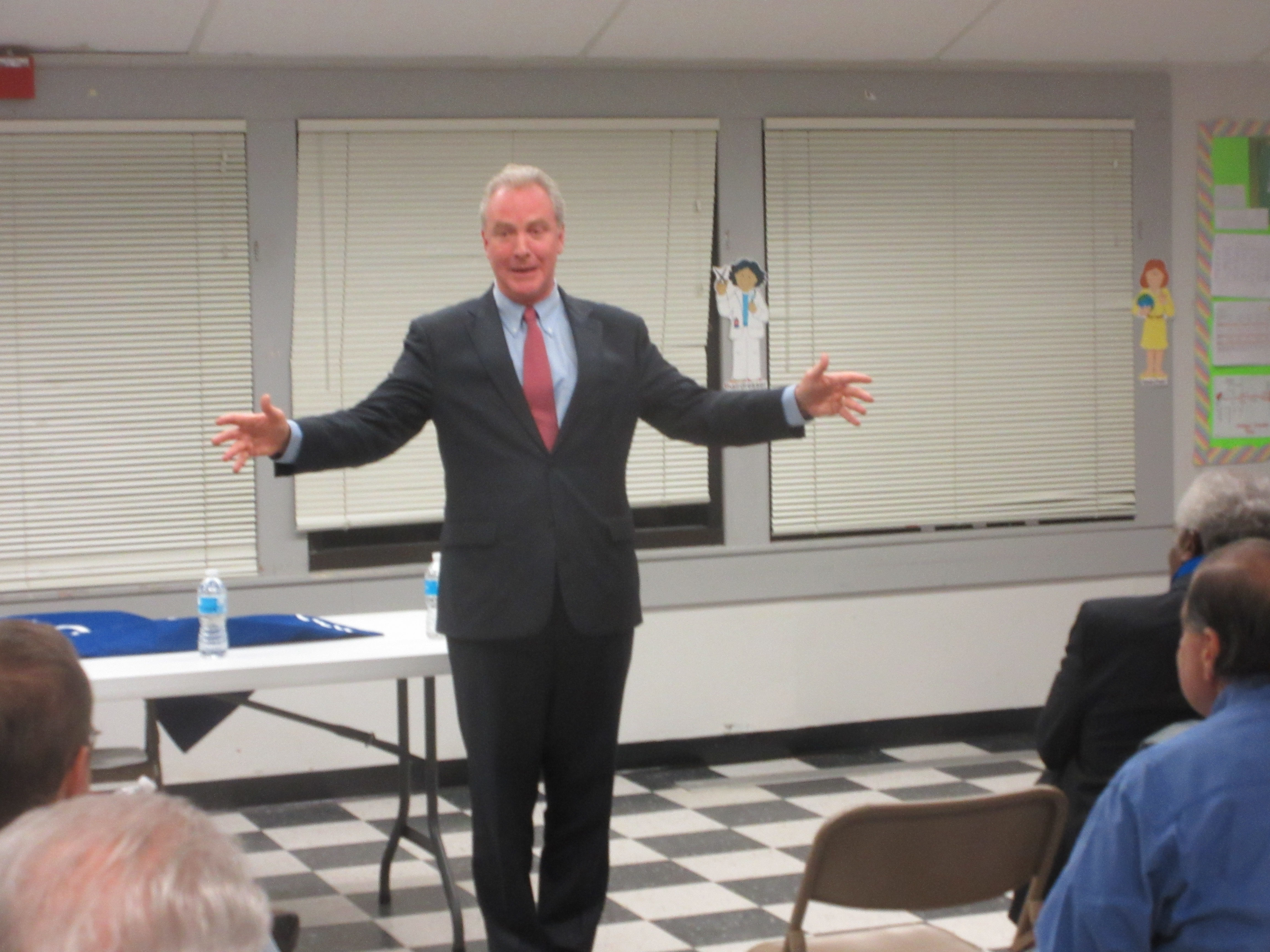By Rachel Bluth
Capital News Service
Maryland’s new paper ballot system will be available statewide for April’s elections, but officials said Friday they are worried that voters won’t know how to use them in time, adding to election day-wait times.
In 2007, the Maryland General Assembly passed a law requiring elections to be conducted on paper ballots instead of the touch-screen ballots that Maryland residents have been using since 2002.
In April, the new machines will be ready for primary elections. Voters will fill out a paper ballot in pen, filling in bubbles next to their choices. They then would insert their ballot into an electronic reading machine.
“We’re concerned that we don’t have the money to do voter outreach, and we’re concerned that that’s going to add to wait times,” said Maryland Board of Elections State Administrator Linda Lamone.
Lamont told legislators Friday that election judges have had hours of training, including classroom training and mock elections, but there simply isn’t enough money for voter outreach. She said that the last time Maryland changed voting systems, in 2002, there was more than $2 million, but this year, $1.8 million that had been budgeted for outreach was eliminated.
“If we had the funding, we’d be much more comfortable than we are today,” Lamont said
The $1.8 million funding for a public relations contract to do voter education was rejected last June by the Board of Public Works with Lt. Gov. Boyd Rutherford taking the lead against the contract. “I guess I just think people are smart,” said Rutherford, who argued voters were capable of understanding the new machines.
Concerns about Spanish-speakers
Delegate Ana Sol Gutierrez, D-Montgomery, said she was worried that the limited amount of outreach would adversely affect Spanish-speakers.
“We’re quite concerned,” Sol Gutierrez said. “It’s a new system, we’ve been actively trying to market it ourselves, and then to translate it so non-English speaking voters can use it.”
Each county will pay for a “specimen ballot” to be made available to people before they vote, and there are outreach efforts by individual counties, like Anne Arundel, but Lamont said that isn’t enough.
“Anne Arundel county has in excess of 300,000 voters,” Lamone said. “So 800 people (who have been trained), thank goodness they know how to use it, but they’ve got a long way to go.”
As far as statewide outreach goes, the Board of Elections is designing an explanatory postcard that will be sent out a few weeks before the primary. Beside that, there is also one person, on contract, doing social media to reach voters, Lamone said.
Touch screen for the disabled
Each polling place will also have a special touch-screen kiosk for people with disabilities. These machines guide the voter through each ballot item and alert them at the end if an answer is incomplete. The screen can only show seven candidates at once, and the machine will not let a voter cast their vote until they scroll through to see all the candidates.
These machines then print out a paper ballot, which gets cast at the ballot-reading machine — the same one used by voters who “bubble in” their answers.
The new system cost around $28 million, according to Donna Duncan, the assistant deputy administrator for election policy.
Also new this election season is same-day registration for early voting. There are 66 early voting centers in the state, with a potential 67th being proposed in Montgomery. To do this, the Motor Vehicle Administration is giving the Board of Elections a database of people who are eligible to register, but haven’t yet.
The Board of Elections will then go through that list to make sure people are eligible — they are living and not felons — and will “pre-qualify” those people so they can register and vote on the same day.









Nothing goes as planned when any new system is introduced (Murphy’s Law)!
I lived in Maryland for 46 years until 2003, moving to Virginia at that time.
I served as an election official it precincts in Baltimore County in ’96, ’98, and 2000, and we had then what the state is now reverting to, a paper ballot which was marked by the voter and then inserted into a single ballot-scanning/reading machine.
The idea that this is hard or difficult to understand is either naive, condescending, a ruse, or silly. It worked then and it worked fine. I’m sad and puzzled to hear that the state spent the money and time to go to all electronic machines for a time.
This part paper ballot/part machine is the best of both worlds: the machine gives a single tallying point, much better than the headache of systematically adding up the numbers of the 4, 5, or 6 electronic machines; also, if there is any error in the electronics, or any hacking of data, you have the paper ballots available to check.
I think it is going to be a nightmare. I “retired” from being an election judge rather then have to deal with it. It’s one of the most backward ideas we’ve implemented recently